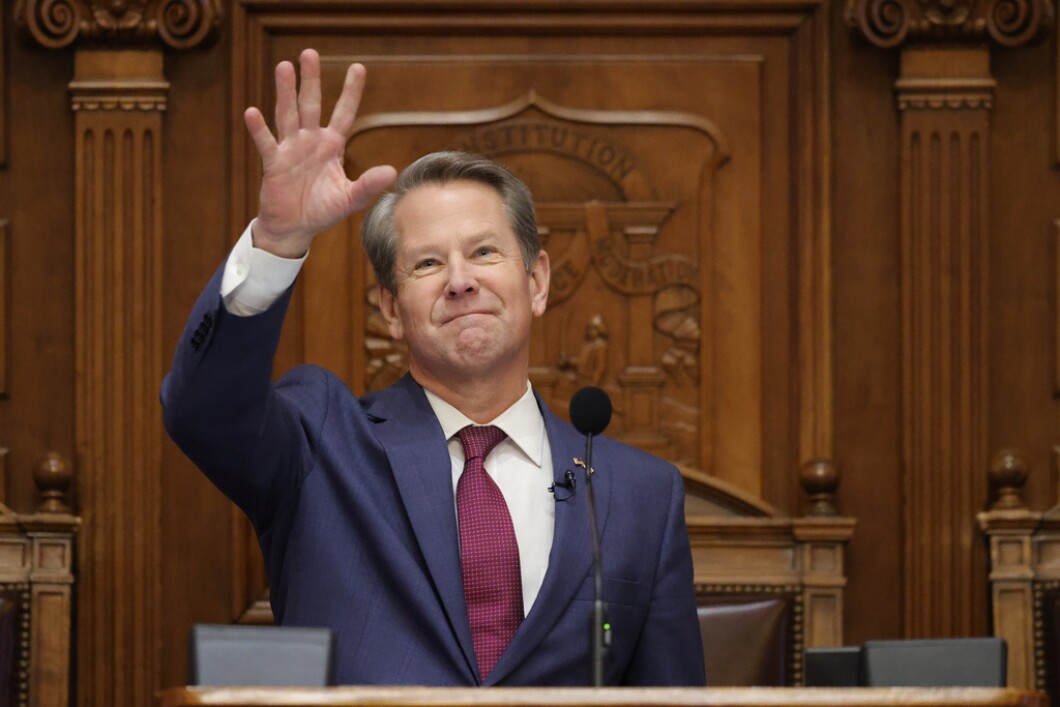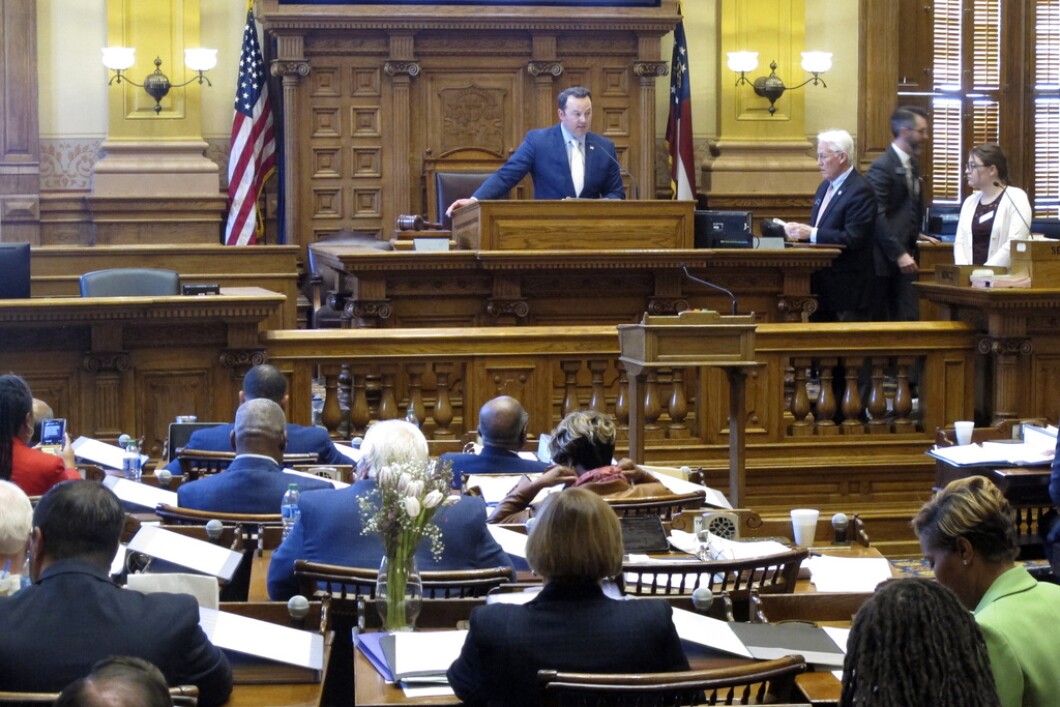
Local governments in Georgia could face felony charges if they receive donations from nonprofit organizations after the 2020 general election saw million-dollar donations to county election offices.
Gov. Brian Kemp (R-GA) signed a law banning nonprofit donations to these offices on Wednesday, a significant win for state and national Republicans looking to limit outside money in elections. Georgia will join 23 other states that have prohibited, limited, or regulated private funding in elections since 2020.
GEORGIA’S RAFFENSPERGER CITES ‘DISINFORMATION’ AS BIGGEST THREAT TO DEMOCRACY
The law, coming from Senate Bill 222, was authored by state GOP Sen. Max Burns. Thirteen other state Republican senators helped co-author the bill, which passed the Senate on March 2 and again on March 28 after the House introduced substitutes.

Beginning July 1, the bill will effectively make it a felony for election workers or government officials to solicit or accept money to cover the cost of running elections from anyone other than the state or federal government. Republicans sought to make these restrictions after the Center for Tech and Civic Life contributed more than $400 million to county election offices nationwide, with $45 million going to Georgia offices, per the Atlanta Journal-Constitution.
Most of the money went to Democratic-leaning counties, but several Republican jurisdictions also received grants. The money went toward mail-in ballot processing equipment, protective gear for election workers, election staffing, absentee ballot postage costs, and voter outreach.
The donations prompted conservatives to call for an investigation after DeKalb County received a $2 million grant in January from the U.S. Alliance for Election Excellence, a project of the center. The money is intended for the election office’s operational budget and facility upgrades, but conservatives, led by former Georgia GOP Sen. Kelly Loeffler, were worried that the funding would influence the election outcomes.
Under the law, DeKalb County will get to keep the grant, but any other county government that accepts future money could face felony charges punishable by at least a year in prison and a $10,000 fine. Donations can still be sent to the state government, which will then decide how to distribute the funds.
“Senate Bill 222 builds on previous law to ensure that our election operations are never bought and paid for by partisan or special interests,” Loeffler, founder of the voter registration organization Greater Georgia, told the Atlanta Journal-Constitution. “This critical measure levels the playing field for election boards across our state and safeguards them from outside influence.”

However, some Republicans support requests for more funding. Georgia Secretary of State Brad Raffensperger asked state budget writers for more money to cover the costs of several things, including absentee ballot tracking service, data for polling place check-in tables, and $4 million to replace backup power supplies for voting machines. Lawmakers declined to add in the $4 million and many other requests made by Raffensperger.
On the other side, Democrats and liberal groups believe this law will lead to underfunded elections and longer lines unless county governments spend more taxpayer dollars to accommodate high turnout levels that can cause delays at election sites — a nationwide headache that played into the cries from many right-leaning politicians and groups that the 2020 election was stolen.
“Further restricting necessary external funding because Republican lawmakers in Georgia refuse to adequately resource our electoral system is anti-democratic, plain and simple,” Stephanie Jackson Ali, policy director for the voter registration group New Georgia Project Action Fund, said.
CLICK HERE TO READ MORE FROM THE WASHINGTON EXAMINER
This is Georgia’s latest change to election laws following the 2020 election. Efforts to overturn the election in the state are currently being investigated by Fulton County District Attorney Fani Willis, whose office is expected to announce criminal charges relating to conspiracy and racketeering sometime this summer.
The Republican-led General Assembly approved broad election modifications in 2021, limiting nonprofit donations but not outright banning them. It also limited absentee ballot drop boxes, required absentee votes to provide additional ID, banned the distribution of food and drinks to voters in line, and allowed state takeovers of county election offices.





